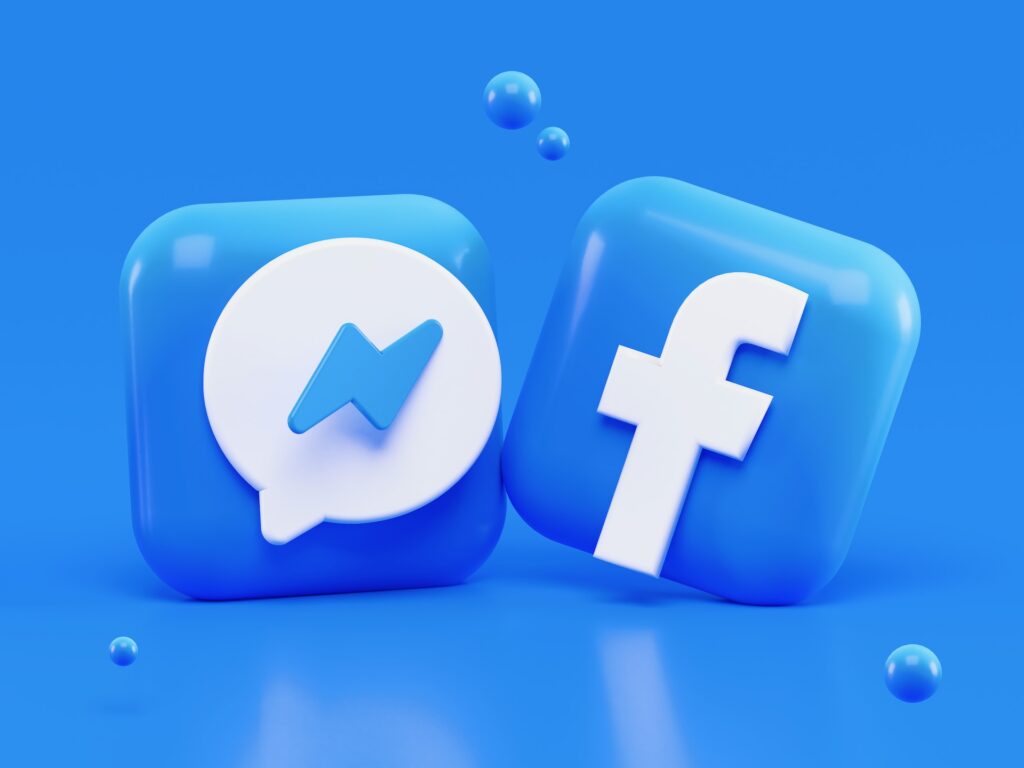In today’s digitally focused world, establishing a strong online presence is crucial for businesses and individuals alike. Two primary avenues for this are websites and social media pages. Both offer unique opportunities to connect with audiences and unlock potential in different ways. In this blog post, we will explore the strengths and weaknesses of websites and social media pages, ultimately determining which avenue reigns supreme.
Table of Contents
Websites: The Power of a Branded Online Hub

Websites serve as a central hub for businesses and individuals to build their online identity and showcase their offerings. Here are some key points highlighting the potential of websites:
- Customization and Branding: Websites provide complete creative control, allowing you to design a unique brand experience reflective of your identity and values. Through carefully crafted layouts, color schemes, and visual elements, a website can leave a lasting impression on visitors.
- Information Control: With a website, you have full control over the content you publish. This enables you to present detailed information about your products, services, and company background, establishing credibility and trust.
- Search Engine Optimization (SEO): Websites are SEO-friendly, enhancing your chances of organic discoverability on search engines. By optimizing your website with relevant keywords and providing high-quality content, you can attract targeted traffic and increase visibility.
Social Media Pages: Harnessing the Power of Engagement

Social media pages, on the other hand, offer a different set of advantages and possibilities. Let’s delve into the potential of social media pages:
- Mass Audience Reach: Social media platforms are bustling hubs of activity with massive user bases. By creating engaging content and utilizing platform-specific features, you can reach a broader audience compared to a standalone website.
- Real-Time Engagement and Interaction: Social media pages foster direct engagement with your audience through comments, direct messages, and reactions. This instant feedback loop allows for quick and organic conversations, helping build relationships and loyalty.
- Viral Potential: Social media thrives on the concept of shares and virality. If your content resonates with users, they may share it, amplifying its reach exponentially. This viral potential can lead to increased brand exposure and visibility.
Websites vs. Social Media Pages: The Ultimate Showdown
While both websites and social media pages offer unique advantages, it’s important to recognize that they serve different purposes. The ultimate winner depends on your specific goals and target audience. Consider the following factors when making a decision:
- Long-Term Branding: If you aim to establish a strong, consistent brand presence with granular control over your content and designs, a website is ideal.
- Direct Engagement and Virality: In scenarios where frequent interaction and capitalizing on the virality of social media are priorities, investing in social media pages can yield impressive results.
- Multi-channel Approach: Combining the strengths of websites and social media pages allows you to diversify your online presence. Utilize social media to drive traffic and attention to your website, maximizing the potential for growth and conversions.
Have a project? Book a call with me
What is the right choice for your business or you; Social Media Pages or Websites?

I can provide you with tips on the choice between social media pages and websites for your business or personal use. Both options have their own advantages and considerations, so it ultimately depends on your specific goals and needs.
Social media pages, such as those on platforms like Facebook, Instagram, Twitter, or LinkedIn, offer several benefits. Firstly, they provide a ready-made and easily accessible audience, allowing you to engage with potential customers or clients directly. Secondly, they often have user-friendly interfaces and built-in features for communication and sharing content. Lastly, active social media presence can help enhance your brand’s visibility and reach.
On the other hand, having a dedicated website for your business or personal use provides more control over your online presence. With a website, you have the flexibility to create a customized and unique experience for your visitors. You can showcase your products, services, or portfolio in detail, implement e-commerce functionality, collect customer data, and have a consistent branding approach. A website also provides a professional image and can be optimized for search engines to attract organic traffic.
In many cases, a combination of both social media pages and a website might be the most effective approach. Use social media to connect and engage with your audience on a more personal level, while also directing them to your website for a deeper experience and to facilitate transactions or conversions.
It’s important to consider your target audience, the nature of your business, your marketing goals, and the resources you have available when making this decision. You may even want to conduct market research or seek professional advice to determine the best strategy for your specific circumstances.
Conclusion
In the evolving digital landscape, websites and social media pages continue to play pivotal roles in unlocking potential and connecting with audiences. While websites offer branding control and SEO benefits, social media pages enable real-time engagement and viral reach. The key lies in strategically utilizing both avenues, leveraging their respective strengths to forge a strong online presence. So, rather than debating which avenue reigns supreme, unlock the true potential by embracing a comprehensive online strategy that incorporates both websites and social media pages.
FAQS: Frequently Asked questions when Unlocking the Potential: Websites vs. Social Media Pages – Which Avenue Reigns Supreme
Does my business still need a website?
While there are alternative online platforms like social media, a website provides more control and customization options for your business. It’s worth considering if you want to establish a strong online presence and effectively engage with your audience.
Here are some key points to consider when doubting of the advantages of a website:
- Online Presence: A website serves as a crucial online presence for your business, allowing potential customers to find and learn more about your products or services. It provides a central hub where people can easily access information about your business, contact you, and make purchases.
- Credibility and Trust: Having a well-designed website can establish credibility and build trust with your audience. It’s often one of the first places people go to research a business, and a professional website can leave a positive impression, showcasing your expertise and professionalism.
- Reach and Visibility: A website enables your business to reach a wider audience. Even if you primarily operate offline, having an online presence can help you attract customers who prefer to research and engage with businesses online. A website also allows you to optimize for search engines, making it easier for potential customers to find you.
Which Social Media channel is best?
- No one-size-fits-all answer: The best social media channel depends on your specific goals, target audience, and content type. Each platform has its own strengths and demographics, so it’s crucial to understand your objectives before deciding.
- Facebook: With its large user base and versatile advertising options, Facebook is a popular choice for businesses targeting a wide audience. It allows for extensive audience targeting, content sharing, and has robust analytics tools.
- Instagram: Ideal for visually-driven content, Instagram is favored by businesses in fashion, beauty, travel, and other industries that rely on appealing visuals. It offers features like Stories, IGTV, and influencer collaborations, allowing for creative storytelling and brand promotion.
Remember, these are just a few highlights. Investigate each platform’s demographics, features, and advertising options to determine which one aligns best with your goals and target audience.
Should I build a website myself, or hire someone to do it?
Building a website for your small business? Here’s a guide to when you should roll up your sleeves and when you should hire a professional.
Some things are best left to a professional. Some clients learned this the hard way, when they started building their websites themselves. However, when it comes to building a website, the question is a bit more complicated.
So, should you build your website yourself or hire a professional?
The good news is that building a website yourself has never been easier. While being proficient in coding may have been required a few years ago, dozens of simple tools now exist that will allow you to build your own website without learning how to code—and they’re relatively cheap.
But first, you need to ask yourself a few questions:
- Skills and Expertise: Determine your technical proficiency and knowledge of website development. If you’re familiar with web development and design, you might consider building a website yourself. Otherwise, it might be better to hire a professional.
- Time and Resources: Consider the amount of time you can dedicate to building and maintaining a website. Developing a website from scratch requires learning, troubleshooting, and ongoing updates. Hiring someone can save you time and allow you to focus on other aspects of your business.
- Budget: Evaluate your budget for website development. Building a website yourself can save money upfront, but hiring a professional can provide a higher-quality and more polished end result.
- Customization and Functionality: Determine the level of customization and functionality you need for your website. DIY platforms often have limitations, while hiring a professional can provide a more tailored and flexible solution tailored to your specific requirements.
- Design and User Experience: Assess your design and user experience skills. Hiring a professional can ensure a visually appealing and user-friendly website, which can enhance your brand’s image and attract more visitors.
- Technical Support and Maintenance: Consider ongoing technical support and website maintenance. Hiring a professional can provide ongoing assistance and ensure your website remains secure and up to date.
- Long-term Goals: Think about your long-term goals for the website. If you anticipate frequent updates or expansions, a professional can offer scalability and future-proofing, while building it yourself might require additional learning and development.
Remember, each situation is unique, so carefully evaluate your own circumstances and requirements before making a decision.
Sources
- Cira : https://www.cira.ca/en/resources/news/domains/should-i-build-a-website-myself-or-hire-someone/
- Buffer : https://buffer.com/library/social-media-sites/
- itSeeze: https://itseeze.com/blog/6-reasons-why-you-shouldn-t-build-your-own-website/
- Hallajate: https://hallakate.com/en/website-vs-social-media-which-is-better-for-your-business/